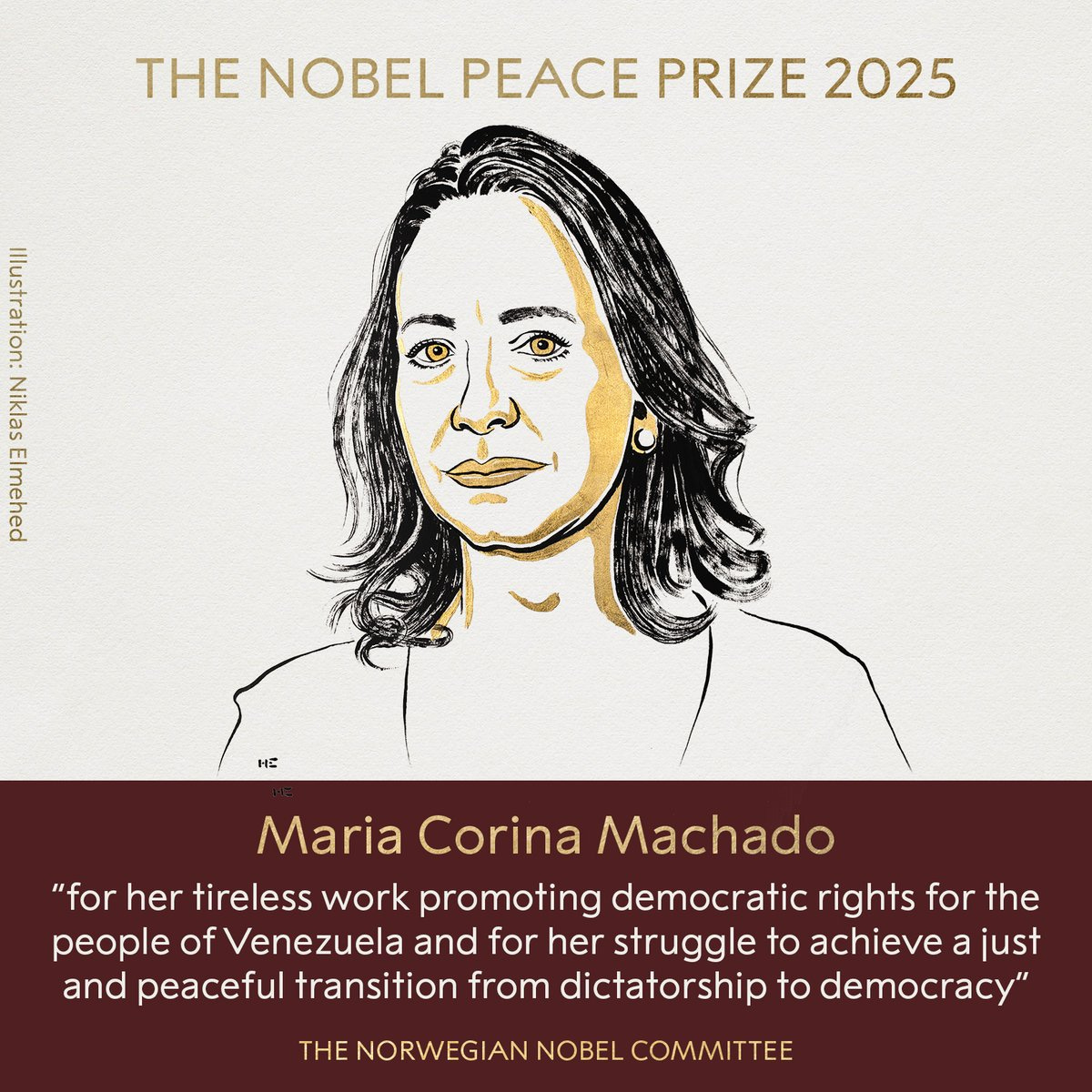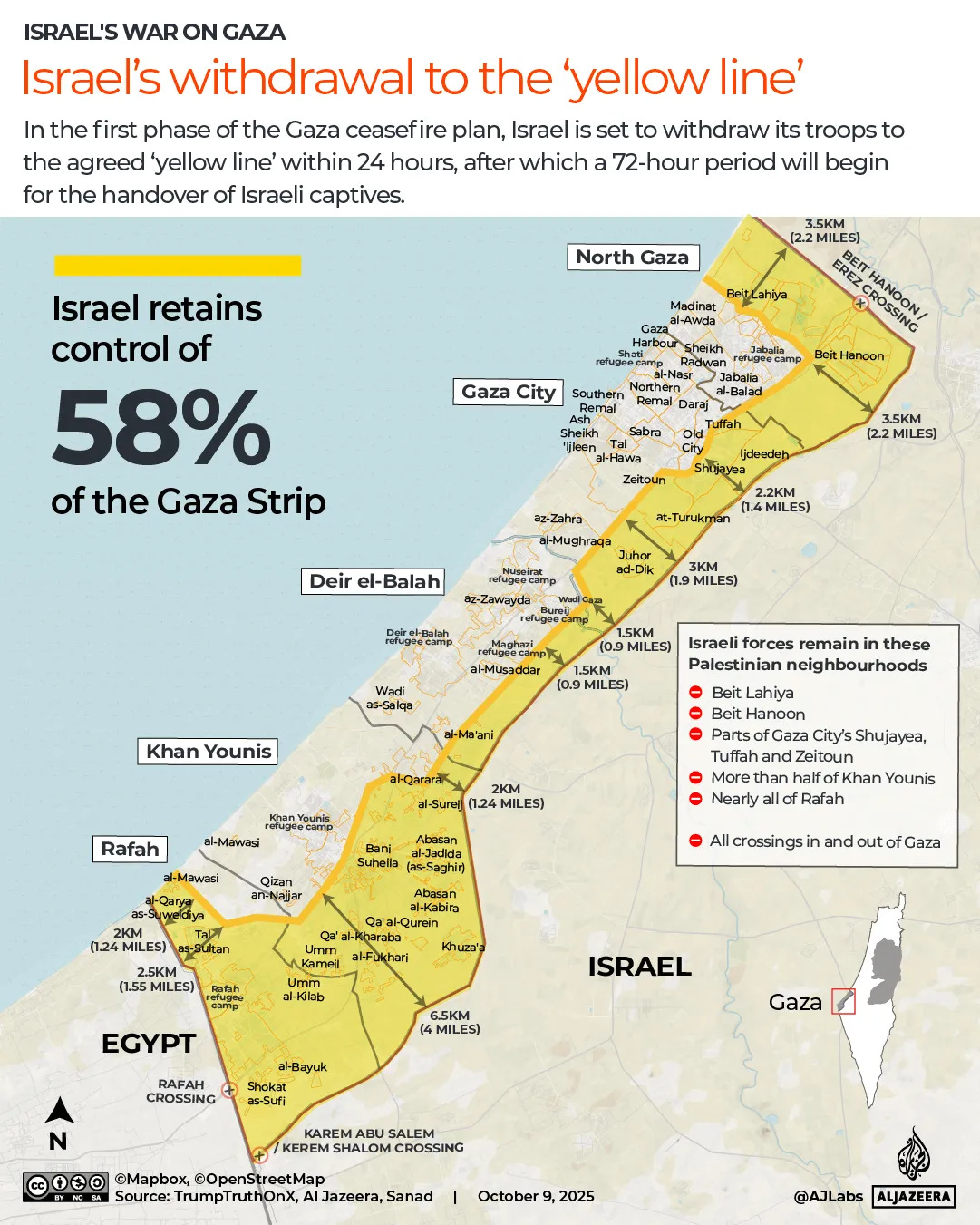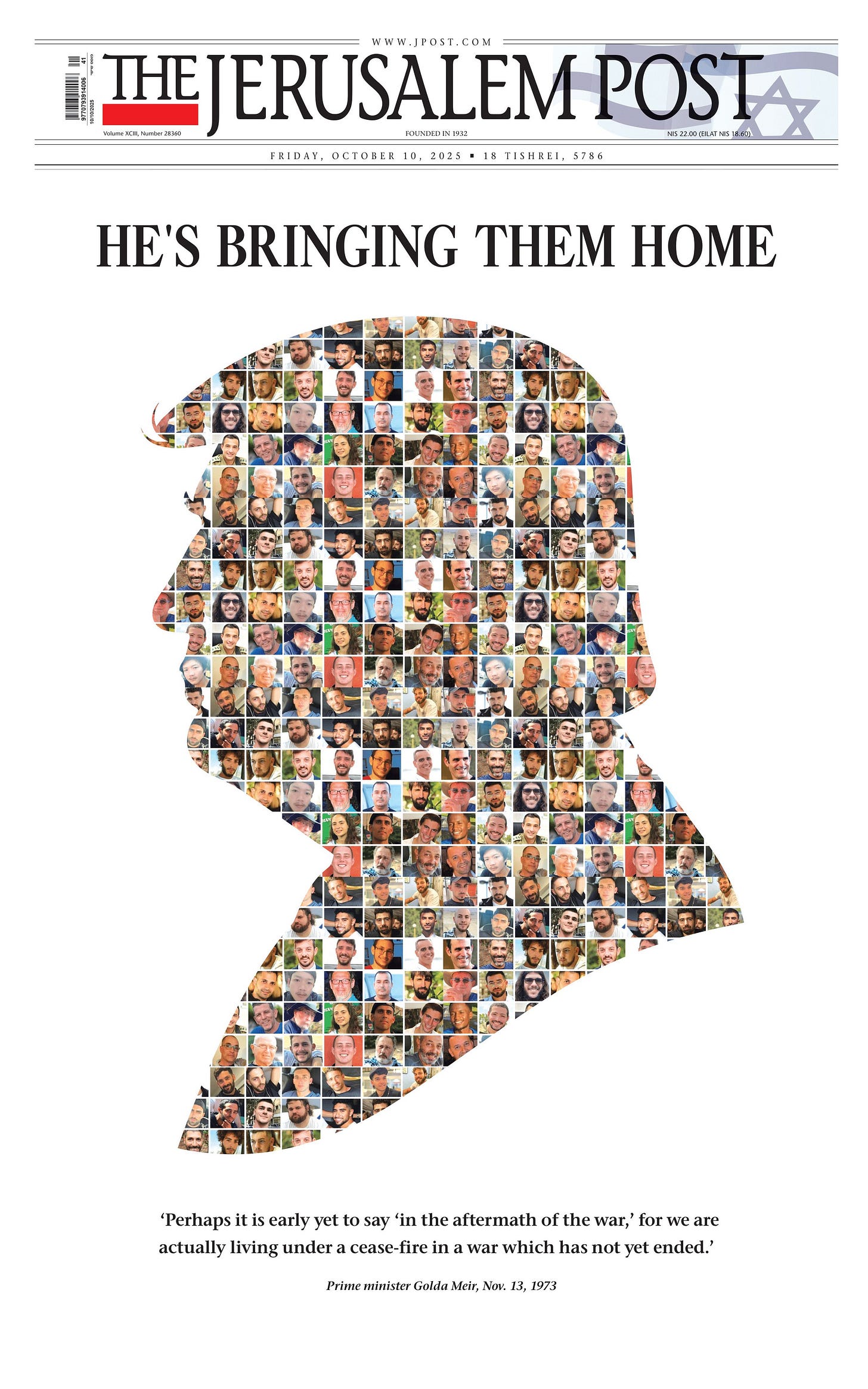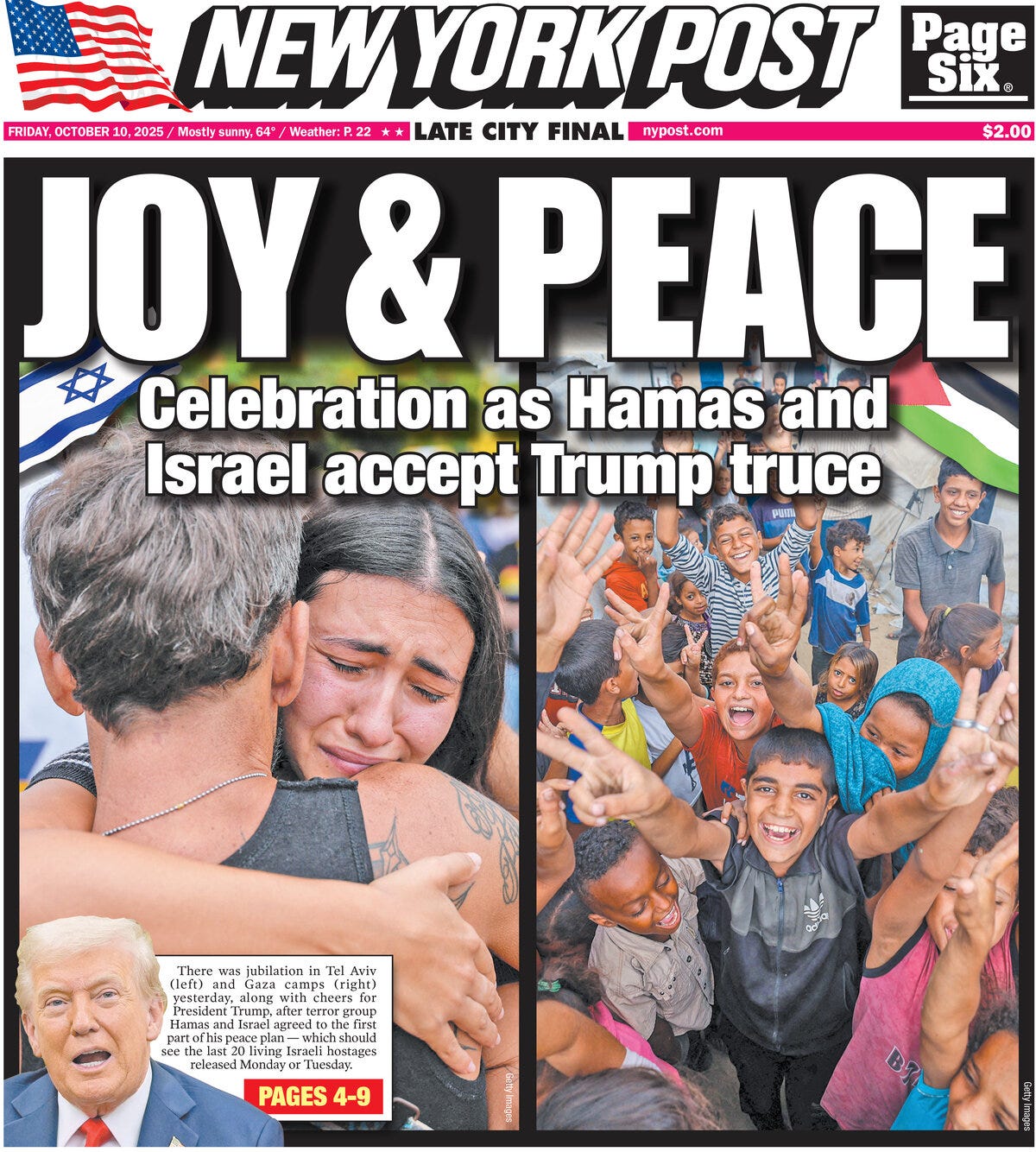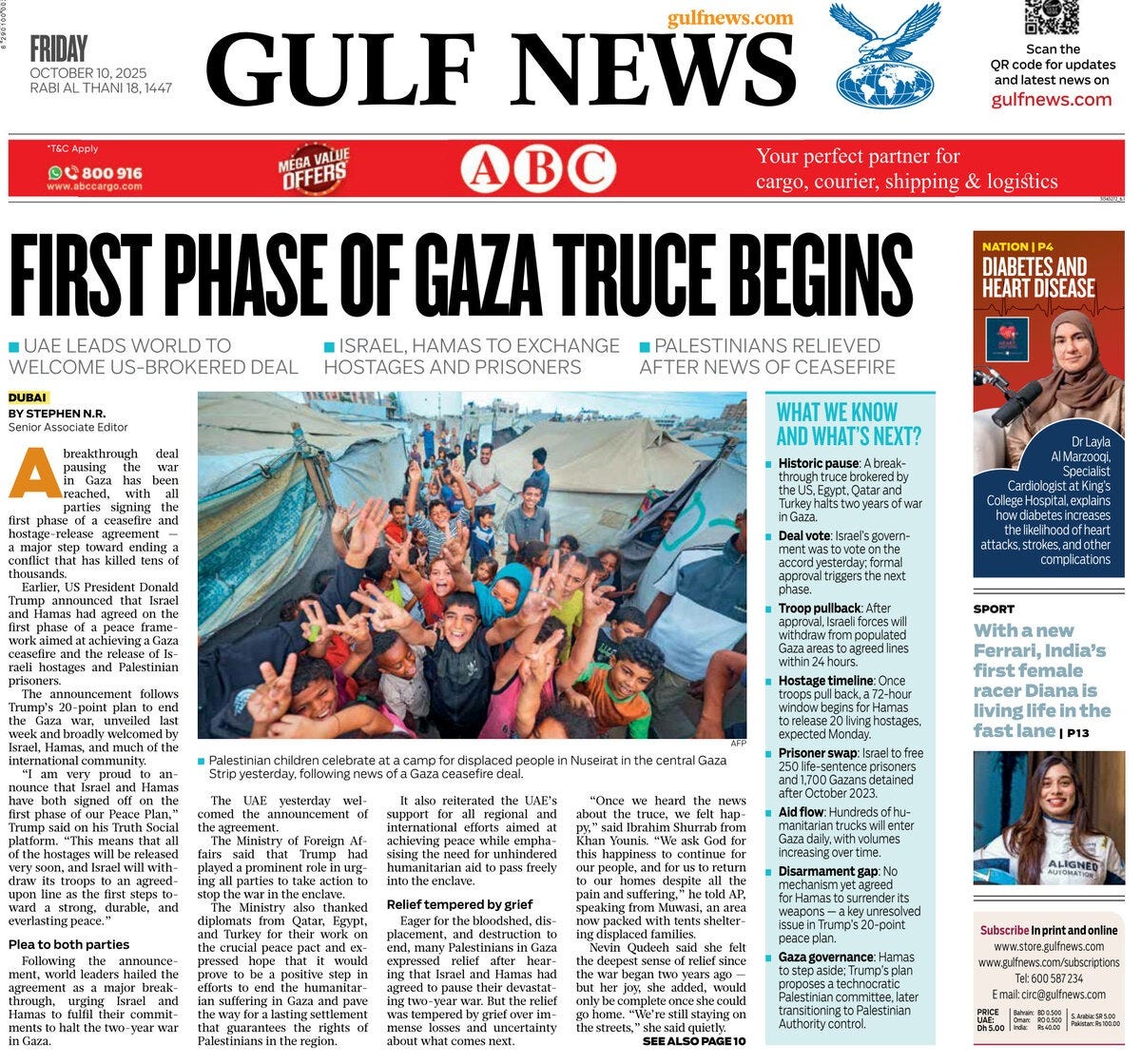“A Signal of Strong Support”: Nobel Goes to Venezuela’s Machado, Not Trump
From hiding to the global stage, the Venezuelan opposition leader is recognized for her decade-long struggle against Maduro’s autocracy. Praise from region ensures it reverberates far beyond Caracas
Venezuelan opposition leader María Corina Machado has been awarded this year’s Nobel Peace Prize. “I’m in shock... shocked with joy,” says the 58-year-old on hearing the news. Machado was barred from running in last year’s presidential elections won by President Nicolás Maduro. The polls were widely dismissed internationally as neither free nor fair. She has largely been in hiding since those elections. The Nobel committee recognised her “tireless work promoting democratic rights for the people of Venezuela” and “her struggle to achieve a just and peaceful transition from dictatorship to democracy.” US President Donald Trump had led a public campaign to win the award, but nominations closed in January - at the start of his second term in office
The White House on Friday criticized the Nobel Committee after it declined to pick Trump for the organization’s vaunted Peace Prize. But the prize’s actual recipient, Maria Corina Machado, said she was partly dedicating the award to Trump for supporting her efforts to promote democracy in her country. Machado said in an X post that her cause of achieving freedom and democracy depends on Trump and other key allies. “I dedicate this prize to the suffering people of Venezuela and to President Trump for his decisive support of our cause!” she wrote. Machado’s shoutout came less than three hours after White House communications director Steven Cheung claimed that by snubbing Trump, “The Nobel Committee proved they place politics over peace.” Trump for years has said he deserves the prize, which has been awarded by the Norwegian Nobel Committee more than 100 times since 1901 to honor one person’s work to promote peace - CNBC
The organizers of the Nobel Peace Prize are investigating whether insiders used privileged information about this year’s winner to profit on crypto prediction market Polymarket, according to local reports. Roughly 11 hours before the closely watched award was given to Maria Corina Machado this morning, the odds of her victory surged from near-zero to over 70% on Polymarket. The market on this year’s Nobel Peace Prize winner has accumulated over $21.4 million in trading volume since opening in July. For nearly all of that time, the odds of Machado receiving the coveted prize have hovered around a 1% or 2% likelihood. Then, Thursday night, shortly before 1:00 am Norway time, the Venezualan’s odds of winning surged to over 43%. By 2:00 am, they hit 73%. The identity of the recipient of the Nobel Peace Prize—one of the most coveted awards in the world—is typically kept tightly under wraps. Even Machado herself did not find out she had won the award until minutes before the news was announced publicly in Oslo at 11:00 am this morning. The five-member committee tasked with selecting the award’s winner did not even come to a decision until this week, according to local reports - Yahoo Finance
During the elections, Machado managed to attract huge crowds to the streets to rally for their candidate – Edmundo González. The BBC’s South American correspondent, Ione Wells, wrote that she alarmed Nicolás Maduro’s government as, for once, a unifying figure for the country’s opposition who was capable of attracting thousands of people to the streets – and to polling stations.
All the polls last year pointed to her movement winning. And yet, Nicolás Maduro won office for a third term despite election observers documenting many irregularities. After the election result, there were protests around the country. But, these swiftly were quashed by a crackdown by the authorities. Machado herself has been living in hiding pretty much ever since, with the exception of a brief appearance during a protest ahead of Maduro’s inauguration in January. She was briefly arrested, and then freed.
“The Nobel prize award to María Corina Machado shows very strong support to her fight and to the fight of thousands of Venezuelan people that are up against the dictator Nicolás Maduro. Here in Colombia we received the news as a signal of very strong support to the democratic fight on our continent…we celebrate it. I am pretty sure President Trump deserves his own Nobel prize for what he is doing in Gaza and in Israel. But María Corina has been doing this fight for over ten years, so it is her turn first” - senior Colombian diplomat (exclusive to World Briefing)
The Israeli military says it has partially withdrawn troops from parts of Gaza after a ceasefire agreement between Israel and Hamas came into effect on Friday morning. Israeli forces said they had pulled back to an agreed position within the territory - though troops still occupy half of the Strip. Footage shows thousands of Palestinians making their way to the north of Gaza, which has been heavily bombarded by Israeli forces in recent months. The ceasefire came into effect after the Israeli government approved the first phase of US President Donald Trump’s ceasefire and hostage return deal on Thursday. The next phases are still being negotiated. Under the deal, Hamas has until 12:00 local time (10:00 BST) on Monday to release all Israeli hostages - including 20 who are believed to be alive, and up to 28 hostages’ remains. Israel should also release about 250 Palestinian prisoners serving life sentences in Israeli jails. Israeli army radio said 100 will be released into the West Bank and five to East Jerusalem. More are expected to be deported. A further 1,700 Palestinians from Gaza who have been detained should also be released. Under the terms of the deal, aid trucks should also be allowed unrestricted into the Strip to bring desperately needed aid to Gaza’s population - many of whom have been repeatedly displaced during the two-year war. Around 600 aid trucks are expected to enter Gaza daily from Friday, though details of the rollout remain unclear and it has not yet been confirmed whether any increased aid has reached people since the ceasefire began. A famine was declared in part of the territory for the first time in August by UN-backed experts, who said more than half a million people were facing “catastrophic” conditions characterised by “starvation, destitution and death”. Israel has repeatedly denied that there is starvation in the territory.
Confirmation has come from the White House that Donald Trump is going to be heading to the Middle East. First of all, he is going to head to Israel, arriving there around midday on Monday. He’s been invited to address the Israeli parliament. The intention is that he’ll immediately then go to Sharm el-Sheikh in Egypt, where a lot of the negotiation was carried out. There, he will sign the official peace deal with the others who were involved in negotiating the ceasefire that we’re seeing now. He’ll spend roughly about seven to eight hours on the ground. This is the White House, all things subject to change – but that’s the intention at the moment - AJE
The United Nations has been given the green light by Israel to begin delivering aid into Gaza starting on Sunday, The Associated Press reports. A UN official, speaking on condition of anonymity to discuss details not yet made public, said the aid will include 170,000 metric tons already been positioned in neighbouring countries such as Jordan and Egypt, as humanitarian officials awaited permission from Israeli forces to restart their work. In the last several months, the UN and its humanitarian partners have only been able to deliver 20 percent of the aid needed in the Gaza Strip, according to UN humanitarian chief Tom Fletcher.
A brief explainer on Times Radio (UK) of why the fighting in Gaza “needs to stop now.”
Ukrainian President Volodymyr Zelenskyy condemned what he called a “cynical and calculated attack” by Russia early on October 10 that triggered a fire in a high-rise apartment building in central Kyiv and hit Ukrainian energy sites. A drone set apartments on fire on the 6th and 7th floors of a high-rise block in a central district, said Tymur Tkachenko, head of Kyiv’s military administration, adding that both drones and missiles had been deployed in the assault. Kyiv Mayor Vitali Klitschko said 12 people had been injured, with eight of them taken to the hospital. He said there were power outages in the eastern districts of the city. “The left bank of the capital is without electricity. There are also problems with water supply,” Klitschko said on Telegram. The Energy Ministry said in a post on social media that at mid-afternoon, power outages continued around Kyiv, as well as in Sumy, Kharkiv, Poltava, Dnipropetrovsk, Donetsk, and Zaporizhzhya. According to a Telegram post by Ukrainian Deputy Prime Minister Oleksiy Kuleba, the water supply has been restored for two million people in Kyiv, though approximately 4,000 buildings remain without water. Zelensky said Russia had launched more than 450 drones and over 30 missiles across Ukraine and emphasized that “civilian and energy infrastructure...is the main target of Russia’s strikes ahead of the heating season.” - RFE/RL
Watch above my analysis for Times Radio (UK) on the recent Russian strike packages on Ukraine, the impact on upgraded US intel and weaponry - and what Putin’s endgame might be
Across central Asia and the Caucasus, countries such as Kazakhstan, Armenia and Azerbaijan that were once firmly in Russia’s orbit are now forging deeper ties with rivals like China, the European Union, Turkey or the Gulf states, as they seek to protect themselves against further Kremlin aggression. The turn from Moscow is “driven by fear,” said Alexander Gabuev, director of the Carnegie Russia Eurasia Center. “They try to hedge risks and seek ways to distance themselves from Russia as much as possible.” Russia’s full-scale war on Ukraine, deep into its fourth year, has forced those states to reassess potential threats to their own security after Putin made clear he’s prepared to use force to take back territory that was once part of the Russian empire or to protect Russians living outside the country’s borders. The Russian president is in the Tajik capital, Dushanbe, for a Russia-Central Asia summit on Thursday followed by talks next day with counterparts from the former Soviet Union in the Commonwealth of Independent States. As well as the perceived threat from Moscow, the war is consuming Russia’s economic and military resources and monopolizing the attention of senior officials. As some in the Kremlin fret about Moscow’s declining position, other major powers are stepping in. Chinese trade with the five central Asian republics has jumped by a third in the past two years and President Xi Jinping traveled to Kazakhstan in June. In August, Donald Trumpinvited the leaders of Armenia and Azerbaijan to the White House after helping to broker a peace agreement between them and was granted exclusive rights for the US to develop the so-called Trump Route for International Peace and Prosperity that will run across Armenia to connect Azerbaijan with its Naxcivan exclave bordering Turkey - Bloomberg
Vladimir Putin was forced to postpone a highly anticipated summit with Arab leaders at the last minute due to a lack of interest from those invited. The inaugural Russia-Arab conference, intended to boost Moscow’s standing in the region, was scuppered on Thursday night after the announcement of the U.S.-backed ceasefire deal in Gaza forced leaders to drop out. Although a source told Bloomberg that the summit will almost certainly be rescheduled, its cancellation comes as a personal rebuke to Putin, who had hoped to use the occasion to project soft power in a region that is becoming increasingly interested in building ties with Trump. “Putin wanted to show everyone that he is the leader of the ‘global majority,’ but what kind of majority is that without the Arab world?” said Moscow-based political analyst Andrei Kolesniko. “He would like to be as big a player there as the Soviet Union once was, but he lacks the resources.” Of the 22 Arab leaders invited to the summit only a handful confirmed attendance, with regional heavyweights such as Egypt, Saudi Arabia and the UAE declining to attend following developments in Gaza. Russia’s presence in the Gulf was severely weakened last year following the collapse of Syrian dictator Bashar al-Assad’s regime, while both the U.S. and China have strengthened ties - Bloomberg
If you’ve been finding value in my reporting and analysis, now is the perfect moment to upgrade to a paid subscription to World Briefing. Your support makes this work possible and keeps independent commentary alive.
Prefer another route? You can join my Patreon community or support my mission directly via PayPal. Every contribution helps me bring you on-the-ground insights and behind-the-scenes analysis.
The Trump administration on Thursday proposed banning Chinese airlines from flying over Russia on routes to and from the United States, saying the reduced flight time this practice enables puts American carriers at a disadvantage. The proposal is another escalation of the trade warbetween the world’s two largest economies and was announced after Beijing on Thursday tightened controls for rare earths exports crucial for some U.S. industries. U.S. airlines have long criticized the decision to allow Chinese carriers to use Russian airspace on U.S. routes because it gives them the advantage of decreased flying time and burns less fuel, lowering costs. Russia has barred U.S. airlines and many other foreign carriers from flying over its airspace in retaliation for Washington banning Russian flights over the U.S. in March 2022 after the country invaded Ukraine. Chinese airlines were not banned and have been using this advantage to increase market share compared to non-Chinese carriers on international routes. The U.S. Transportation Department said on Thursday in its proposed order the current situation was “unfair and has resulted in substantial adverse competitive effects on U.S. air carriers.” The current proposal to apply the overflight restriction to U.S.-issued foreign air carrier permits does not apply to cargo-only flights, it added. The Transportation Department’s decision could affect some U.S. flights operated by Air China, China Eastern, Xiamen Airlines and China Southern. The order did not name Hong Kong-based airline Cathay Pacific, which overflies Russia on its New York to Hong Kong route, according to flight tracking website Flightradar24 - Reuters


